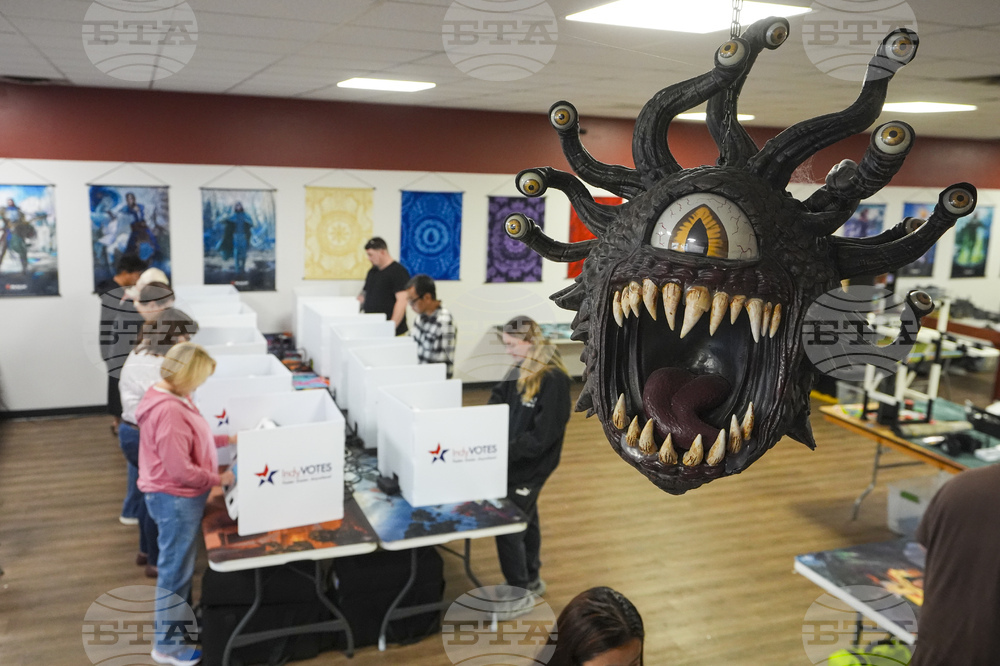site.btaRole-Playing Games Are More Popular Than Ever - And Some People Are Even Turning It Into a Career


From fantasy battles to apocalyptic scenes, magical weapons and sorcery, role-playing games let players dive into otherworldly adventures and shape their own stories. While tabletop role-playing games (RPGs) like Dungeons & Dragons (D&D) have been around since the 1970s, the genre has experienced a major surge in popularity in recent years - particularly with the rise of computer role-playing games (CRPGs) and online platforms that make it easier to play. Some are turning it into a career.
What started as a niche hobby among small groups of friends has blossomed into a cultural phenomenon. Live-streamed role-playing campaigns like Critical Role attract 2.37 million fans on YouTube and 1.38 million on Twitch, while theater companies and live events have brought RPGs to mainstream venues like the Sydney Opera House. And the live shows are frequently selling out!
The COVID-19 pandemic played a big role in RPGs’ growth. With people stuck at home, tabletop gaming groups moved online, using tools like virtual dice rollers and video chats to connect. Now, RPGs are everywhere, with players spanning all walks of life—from devoted fans of the classics to newcomers curious about creating their own characters and stories.
A lesson in history of a nerdy game
Role-playing games first emerged from wargaming in the 1970s. Instead of controlling armies, players took on the roles of individual characters. Over time, these gave rise to storytelling-focused games like Dungeons & Dragons, where players collaborate to navigate challenges and create narratives together.
The appeal of RPGs lies in their flexibility and creativity. Unlike board games with strict rules, RPGs are guided by a "Game Master" (GM), who acts as a storyteller and referee. Players describe what they want their characters to do - such as dodging a zombie’s attack or solving a tricky puzzle - and the GM determines the outcomes, often using dice rolls to introduce an element of chance.
RPGs in Bulgaria: from obscurity to resurgence
RPGs arrived in Bulgaria during the late 1990s, but their popularity initially grew slowly. It was a silent event that went virtually unnoticed even among most geeks. At the time, specialized dice and rulebooks were hard to come by, and ordering them online wasn’t an option for many. Enthusiasts found creative ways to adapt, such as inventing dice-rolling methods or sticking to systems that used common six-sided dice in place of the 20-sided dice the games called for.
For years, RPGs were seen as a niche pastime. But as geek culture gained mainstream acceptance, the hobby began attracting more players.
Today, even in Bulgaria, groups are thriving online and in-person, proving that RPGs are no longer “just for nerds.”
The rise of professional game masters
The growing popularity of RPGs has led to an unexpected new career: professional Game Masters. While traditionally a hobby, some GMs now charge players to participate in expertly run campaigns. BTA’s Assen Georgiev spoke with professional GM Tsire Divyn about what it’s like to turn a passion for gaming into a full-time job.
Divyn started GMing professionally after a life-changing accident left him looking for new work. “I saw an ad for professional GMing and decided to give it a try,” he says. Now, he runs 13 campaigns a week, earning a modest but steady income.
Campaigns, in RPG parlance, refers to multiple sessions being played with the same players playing the same characters, usually weekly. Some campaigns have been known to last for years of real-time
“I'm not wealthy by any means, but at USD 20/head (which currently ends up at USD18/head after Start Playing Games’s cut), an average player count of 4.5 per game, and 13 campaigns/week, I make somewhere in the range of USD 3,500 - USD 4,000/ month. Which isn't especially impressive, but it's enough to maintain my current way of life,” Divyn said.
So, what sets a paid GM apart from someone running games for free? Divyn emphasizes the time and effort he invests in crafting engaging, personalized experiences. “This is my full-time job,” he explains. “I’m available to help players develop their ideas and create memorable stories.”
Asked to name the games he runs the most, Divyn said at the moment it is Exalted 3e. “But it kinda varies with the year and season. I had a period where I ran a lot of Shadowrun 5e, one where all I ran was D&D (but now I don't run any D&D), and even one where I mostly shifted towards Blackbirds: the Extinguishing.”
Whether you’re into fantasy, science fiction, or dark dystopian worlds, there’s an RPG out there for everyone. Popular systems like D&D and Pathfinder offer fantasy with elves, orcs and wizards, while games like Mythras, Cyberpunk Red and Call of Cthulhu tend to focus on different genres. Thanks to online platforms, even the most obscure games can find an audience, this GM said.
/NF/
news.modal.header
news.modal.text